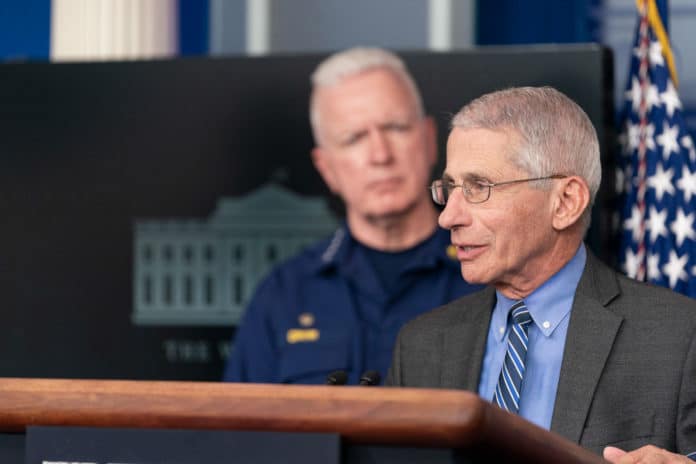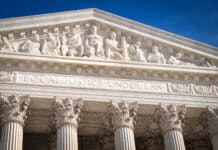(The Center Square) — Dr. Anthony Fauci plans to resign at the end of this year, but his announcement sparked a series of pledges from House Republicans to investigate him, regardless of his resignation.
Fauci announced Monday he will step down in December from his roles as director of the National Institute of Allergy and Infectious Diseases (NIAID), chief of the NIAID Laboratory of Immunoregulation, and chief medical advisor to President Joe Biden.
“Retirement can’t shield Dr. Fauci from congressional oversight,” House Committee on Oversight and Reform Ranking Member Rep. James Comer, R-Ky., said. “Emails obtained by Oversight Committee Republicans reveal what Dr. Fauci said publicly about COVID origins was very different than what was said privately. Dr. Fauci was warned by top scientists early on that the virus looked genetically manipulated and likely leaked from the Wuhan lab. Despite these facts, Dr. Fauci dismissed these ideas in public as conspiracy theories.
“We need to know if Dr. Fauci concealed anything from government officials in order to shield the NIH’s cozy relationship with EcoHealth Alliance, a grantee that awarded taxpayer funds to the Wuhan lab to conduct dangerous research on bat coronaviruses,” he added.
Fauci worked as NIAID director for 38 years but was thrust to the forefront in 2020 when he became a leading voice for the response to COVID-19. Fauci came into controversy for several reasons, including for conflicting COVID guidance given to the public, questions over his role in the funding of the Wuhan lab, whether he lied to the public and Congress, as well as his criticism of former President Donald Trump.
Republicans cited those reasons for pursuing their investigations.
“As he prepares to leave his leadership positions at the White House and at the National Institutes of Health, I hope Dr. Anthony Fauci will work to provide more transparency to the American people,” House Energy and Commerce Committee Republican Leader Rep. Cathy McMorris Rodgers, R-Wash., said after Fauci’s announcement. “We need answers to many questions around the government’s failed COVID-19 pandemic response, how this pandemic started, and his role in supporting taxpayer-funded risky research without proper oversight in China.”
She added that her committee “will continue to pursue answers and accountability.”
“Right now, the country has lost trust in public health agencies. We still don’t know how the COVID-19 pandemic started,” she said. “An entire generation of children have been set back because of school shutdowns and authoritarian mask mandates. We need a full accounting of actions taken and decisions made to ensure these mistakes never happen again.
“Our oversight of Dr. Fauci’s tenure with NIH, the White House and leading NIAID will continue past his departure and until the American people have the answers they need,” she added.
Republican lawmakers pointed out a Republican majority in the next Congress would give them the leeway they need to dig into Fauci’s role in COVID’s origins and aftermath.
“For over two years, Congressional Democrats have refused to hold a single hearing on the origins of COVID, or our government’s possible financial involvement in gain-of-function research,” House Republican Whip and Select Subcommittee on the Coronavirus Crisis Ranking Member Rep. Steve Scalise, R-La., said after Fauci’s announcement. “That will change when House Republicans take the majority next year. It’s good to know that with his retirement, Dr. Fauci will have ample time to appear before Congress and share under oath what he knew about the Wuhan lab, as well as the ever-changing guidance under his watch that resulted in wrongful mandates being imposed on Americans.”
Fauci said he is not retiring, only resigning his current positions. Fauci said in a statement he would leave his roles in December “to pursue the next chapter of my career.”
“It has been the honor of a lifetime to have led the NIAID, an extraordinary institution, for so many years and through so many scientific and public health challenges,” he said. “I am very proud of our many accomplishments. I have worked with — and learned from — countless talented and dedicated people in my own laboratory, at NIAID, at NIH and beyond. To them I express my abiding respect and gratitude.”

















